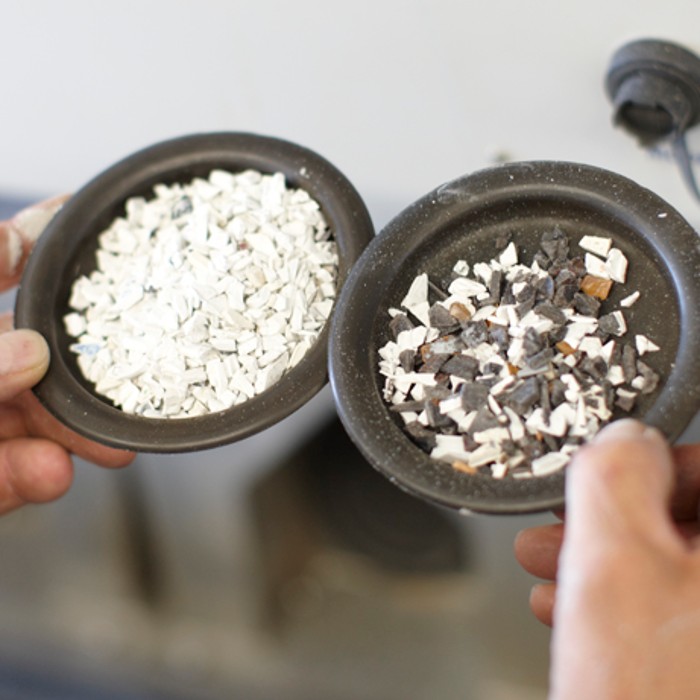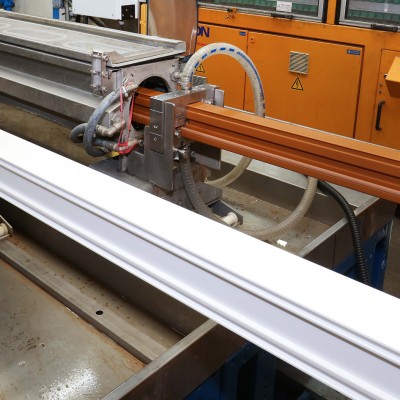
PVC-U means quality already in the production
Profiles made of PVC-U offer unique advantages in the manufacture of high-quality windows and doors. The PVC-U is a polymer that has been used for over 100 years and still stands the test of time, not least thanks to its excellent mechanical and technical properties. These allow the extrusion of highly sophisticated multi-chamber profiles that impress with their performance, processing reliability and also their sustainability. This is because PVC-U windows and doors are practically completely recyclable.
Table of contents
- PVC - one of the most important polymers
- Perfect properties for window production
- Comprehensive recyclability
PVC-U - one of the most important polymers
Among window materials, there is a clear favourite: Around 57% of all windows sold in Germany are made of PVC-U profiles. The abbreviation stands for polyvinyl chloride, i.e. a polymer. Its long-chain molecules are formed by linking very many identical basic building blocks. It is only through this linkage that the properties valuable for use come about: while the basic building block vinyl chloride is a very reactive gas, PVC-U is an extremely robust and also chemically very stable solid.
Despite its modern performance, PVC-U is one of the oldest plastics in existence. The polymer was first produced rather accidentally in 1835, when chemists were intensively studying the structure of natural molecules and found that some of them consisted of thousands of identical building blocks, such as natural rubber or cellulose, an essential component of wood and cotton. Based on this principle, they experimented with the production of artificial polymers - and came across PVC-U, among other things. The fact that its technical benefits were not recognized until 80 years later may be surprising in retrospect: Today, PVC-U is the third most important product of polymer chemistry after polyethylene and polypropylene - around 40 million metric tons of the plastic are produced worldwide every year.
A proven and valued material
PVC-U in its solid form, rigid PVC-U, is not only used for the production of window and door profiles. Its special advantages come into play in building products, but also in many other areas of application.
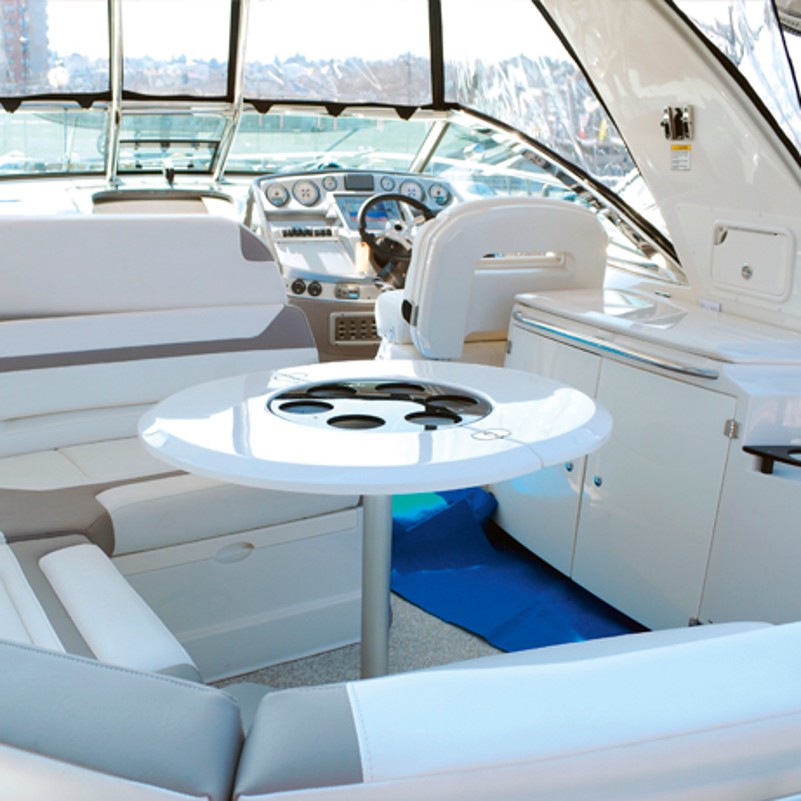

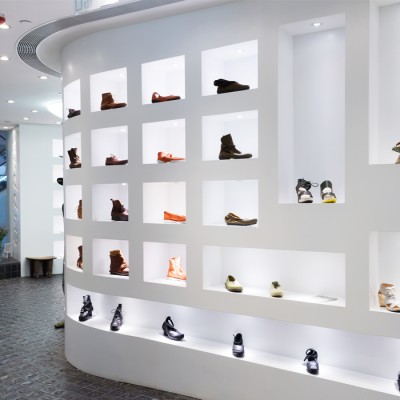
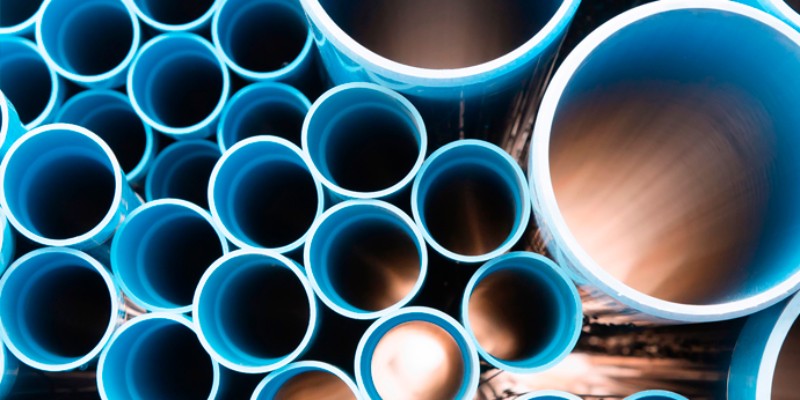
Perfect properties for window production
Depending on the application, one of two basic variants of PVC-U is used. Soft PVC is particularly flexible because it contains up to 40% plasticizer. Important products made from this PVC variant are infusion and blood bags, catheters and other medical products. By contrast, rigid PVC, which does not contain any plasticizers, is used for the extrusion of window profiles and other construction products where dimensional stability is important.
Quality profiles from VEKA are characterized by comprehensively optimized properties. In addition to the outstanding material strength, which together with the Class A wall thicknesses ensures safe processing, these also include high weather resistance and high resistance to air pollutants and other environmental influences. VEKA achieves these characteristics by adding small amounts of additives to the rigid PVC before extrusion. All relevant properties of the profiles are also subject to quality monitoring in accordance with RAL-GZ 716/1, Part 1.
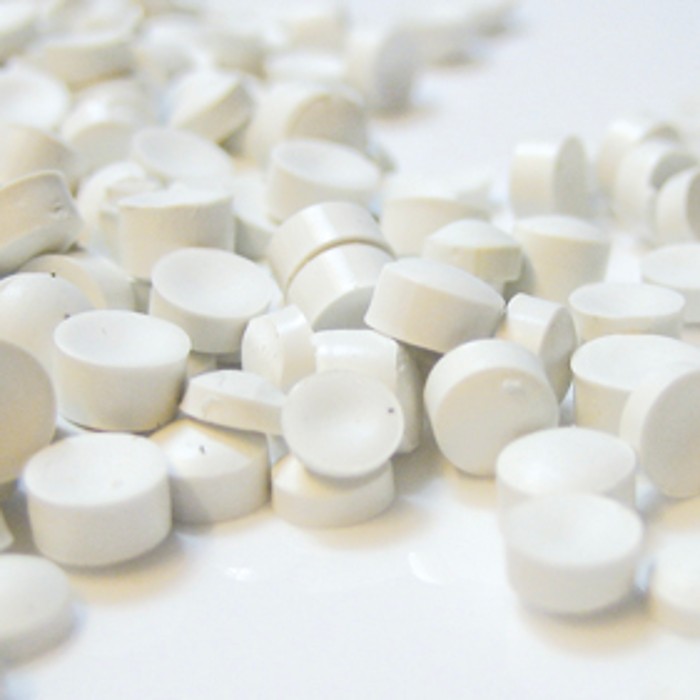
Processing reliability due to precisely controlled properties
"Moulding compound according to ISO 1163-PVC-U, EDLP, 082-25-T23"
Explanations:
U = plasticizer-free
E = Extrusion compound
D = Powder
L = Light and weathering stabilizer
P = Impact modified
082 = Vicat softening temperature in °C
25 = Notched impact strength in kJ/m²
T23 = Modulus of tensile elasticity in 100 MPa
Comprehensive recyclability
Almost all technically relevant plastics are not biodegradable or only extremely slowly. PVC is no exception to this rule. Since PVC profiles from old windows and doors retain their volume permanently in a landfill, this type of disposal is no longer permitted in many European countries. Far too often, the profiles are still incinerated instead.
In fact, the favourable properties of PVC as a material open up a much more sustainable alternative: Old plastic windows and doors, roller shutter profiles and production residues made of PVC can be almost completely recycled. VEKA is a pioneer in this field and has built up several efficient recycling plants in Germany, England and France since 1993. In Germany, the system provider is also a founding member of Rewindo. The convenient collection system enables window fabricators to offer their customers demonstrably the best sustainability with modern windows and doors made of PVC.
